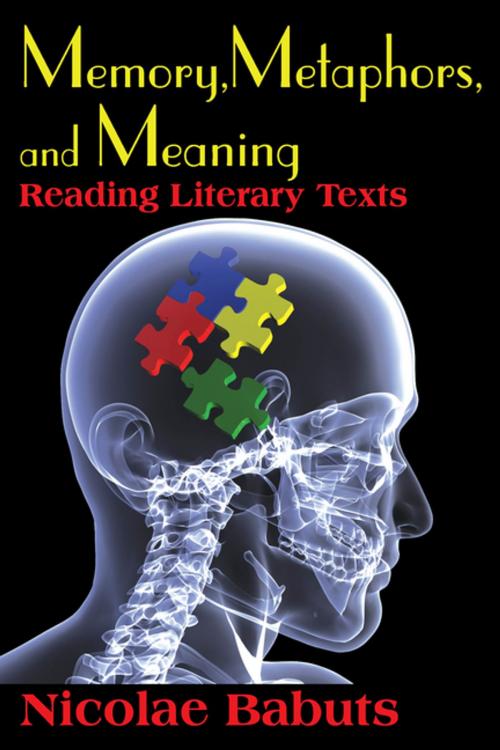Memory, Metaphors, and Meaning
Reading Literary Texts
Nonfiction, Health & Well Being, Psychology, Cognitive Psychology, Religion & Spirituality, Philosophy| Author: | Nicolae Babuts | ISBN: | 9781351505895 |
| Publisher: | Taylor and Francis | Publication: | July 5, 2017 |
| Imprint: | Routledge | Language: | English |
| Author: | Nicolae Babuts |
| ISBN: | 9781351505895 |
| Publisher: | Taylor and Francis |
| Publication: | July 5, 2017 |
| Imprint: | Routledge |
| Language: | English |
Literature explores the human condition, the mystery of the world, life and death, as well as our relations with others, and our desires and dreams. It differs from science in its aims and methods, but Babuts shows in other respects that literature has much common ground with science. Both aim for an authentic version of truth. To this end, literature employs metaphors, and it does so in a manner similar to that of scientific inquiry.The cognitive view does not imply that there is a one-to-one correlation between the world and text, that meaning belongs to the author, or that literature is equivalent to perception. What it does maintain is that meaning is crucially dependent on mnemonic initiatives and that without memory, the world remains meaningless. Nicolae Babuts claims that at the interface with the printed page, readers process texts in a manner similar to the way they explain the visible world: in segments or units of meaning or dynamic patterns.Babuts argues that humans achieve recognition by integrating stimulus sequences with corresponding patterns that recognize and interpret each segment of a text. Memory produces meaning from these patterns. In harmony with its goals, memory may adopt specific strategies to deal with different stimuli. Dynamic patterns link the unit of processing with the unit of meaning. In sum, Babuts proposes that meaning is achieved through metaphors and narrative, and that both are ways to reach cognitive goals. This original study offers perspectives that will interest cognitive psychologists, as well as those simply interested in the process through which literature stirs the human imagination.
Literature explores the human condition, the mystery of the world, life and death, as well as our relations with others, and our desires and dreams. It differs from science in its aims and methods, but Babuts shows in other respects that literature has much common ground with science. Both aim for an authentic version of truth. To this end, literature employs metaphors, and it does so in a manner similar to that of scientific inquiry.The cognitive view does not imply that there is a one-to-one correlation between the world and text, that meaning belongs to the author, or that literature is equivalent to perception. What it does maintain is that meaning is crucially dependent on mnemonic initiatives and that without memory, the world remains meaningless. Nicolae Babuts claims that at the interface with the printed page, readers process texts in a manner similar to the way they explain the visible world: in segments or units of meaning or dynamic patterns.Babuts argues that humans achieve recognition by integrating stimulus sequences with corresponding patterns that recognize and interpret each segment of a text. Memory produces meaning from these patterns. In harmony with its goals, memory may adopt specific strategies to deal with different stimuli. Dynamic patterns link the unit of processing with the unit of meaning. In sum, Babuts proposes that meaning is achieved through metaphors and narrative, and that both are ways to reach cognitive goals. This original study offers perspectives that will interest cognitive psychologists, as well as those simply interested in the process through which literature stirs the human imagination.















